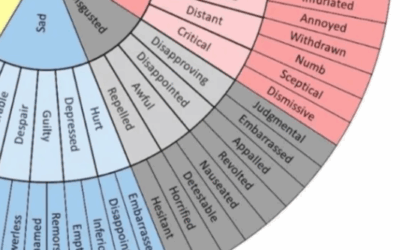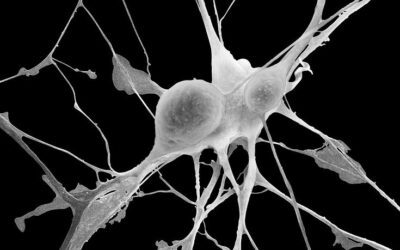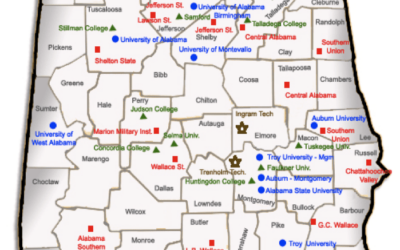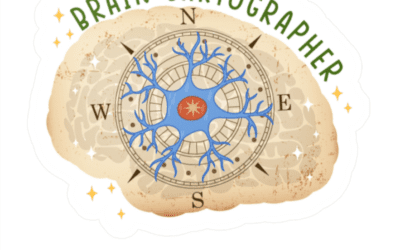Why trauma survivors feel "stained" even when nothing physical happened—and how ritual can restore the symbolic order of the self. The Sensation That Won't Wash Away She scrubs her hands until they're raw. She's been doing it for months now, ever since the assault. The soap, the hot water, the endless repetition—none of it helps. She knows, intellectually, that she's not dirty. Nothing visible stains her skin. Yet the sensation persists: a feeling of contamination that no amount of washing can remove. This is one...
Mental Health Resources for College Students in Alabama: Comprehensive Support for Academic and Personal Success
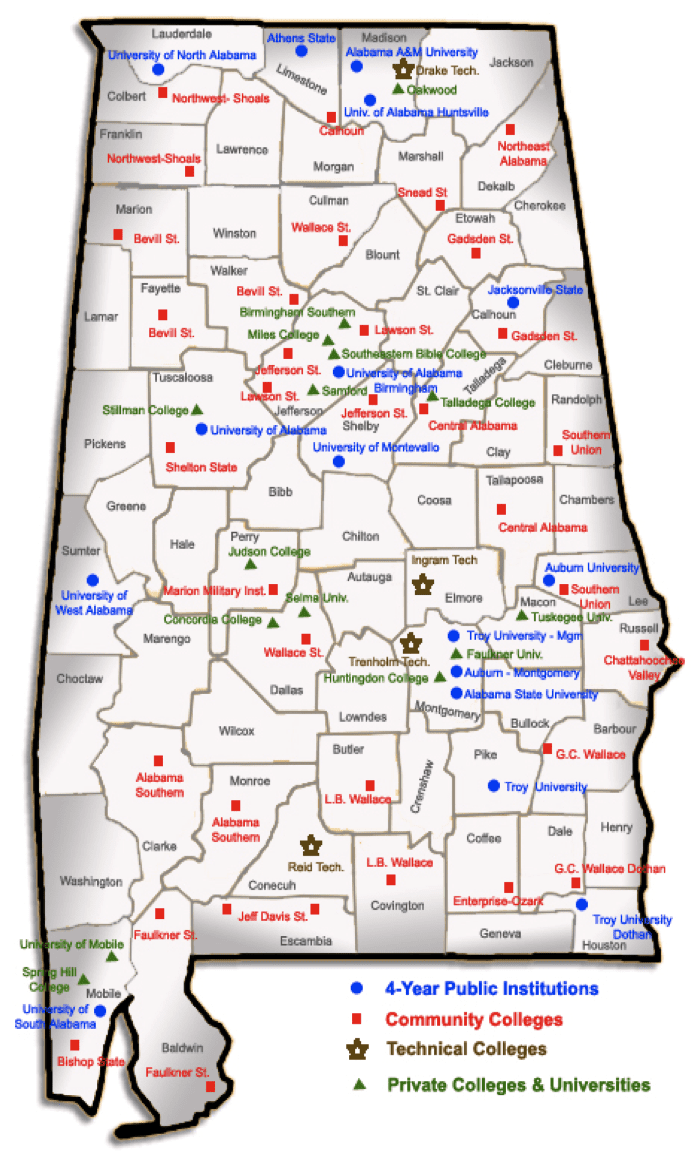
Understanding the Unique Mental Health Needs of Alabama College Students
College represents a transformative period filled with academic challenges, social transitions, identity exploration, and increasing independence. For students attending Alabama’s diverse institutions of higher education, these universal college experiences intersect with unique regional and cultural factors that shape their mental health needs. At Taproot Therapy Collective in Birmingham, Alabama, we understand that college students face unique challenges including academic demands, social pressures, and the transition to independence that can feel overwhelming without adequate support.
The college years coincide with the peak age for the onset of many mental health conditions, making this developmental period particularly crucial for establishing healthy coping strategies and accessing appropriate support. Research indicates that approximately 33.7 percent of young adults ages 18 to 25 experience mental health challenges, with college students facing additional stressors related to academic performance, financial pressures, social adaptation, and career uncertainty.
Alabama’s college culture combines Southern traditions with rapidly evolving social norms, creating unique navigation challenges for students from diverse backgrounds. Whether attending large research universities like Auburn University or the University of Alabama, specialized institutions like UAB’s medical programs, or smaller colleges throughout the state, students must adapt to institutional cultures while maintaining their personal identity and values.
Our comprehensive therapeutic approaches recognize that college mental health needs extend beyond crisis intervention to include support for personal growth, relationship skills, stress management, and life transition navigation. We provide both emergency support and ongoing therapeutic relationships that support students throughout their college journey and beyond.
Alabama’s Major Universities and Their Campus Mental Health Resources
Auburn University provides comprehensive mental health support through Student Counseling & Psychological Services, which serves as the primary mental health counseling center for Auburn’s undergraduate and graduate student community. SCPS offers individual and group counseling, crisis intervention, outreach programming, and consultation services designed to enhance psychological wellbeing while supporting academic success and retention.
Auburn’s counseling center demonstrates strong commitment to inclusion and diversity, creating safe and affirming environments for students of all backgrounds, races, ethnicities, genders, gender identities, sexual orientations, religions, and cultures. The center provides both immediate support through same-day consultations and ongoing therapeutic relationships through individual and group counseling options.
University of Alabama at Birmingham offers extensive mental health support through Student Counseling Services, which provides individual and group mental health services, prevention and outreach programming, crisis and emergency support, and consultation services. UAB’s approach emphasizes supporting students in achieving personal, academic, and lifelong goals while advocating for safe and inclusive learning environments.
UAB recognizes the growing mental health needs of college students and has expanded services to include online group support programs, teletherapy options, and innovative platforms like the TAO Self-Help Platform and Togetherall peer-to-peer chat support. The university’s comprehensive approach addresses both immediate crisis needs and long-term mental health support.
University of Alabama maintains a comprehensive Counseling Center that helps students achieve academic success and personal growth through quality counseling and psychological services, outreach programs, and training opportunities. The center provides screening appointments, same-day consultations, and ongoing therapeutic services designed to address the diverse needs of undergraduate and graduate students.
Alabama’s smaller colleges and universities also provide important mental health resources, though students may face limitations in specialized services or need to seek additional support from community providers to address complex mental health needs.
How Taproot Therapy Collective Serves Alabama College Students
Our specialized understanding of college student mental health needs allows us to provide targeted support that complements campus counseling services while addressing areas where students may need additional or alternative therapeutic approaches. We specialize in offering the widest variety of the fastest treatments for trauma, anxiety, depression and PTSD, providing students with access to cutting-edge therapeutic modalities that may not be available through campus counseling centers.
Pamela Hayes offers specialized expertise in supporting engineering students and professionals struggling with perfectionism, impostor syndrome, and high-achievement pressure that characterizes many Alabama college environments. Her integrative approach combines Lifespan Integration, IFS therapy, and somatic approaches that address complex academic and personal stressors at their roots rather than merely managing symptoms.
Pamela’s work proves particularly valuable for students dealing with academic pressure, perfectionism, Pure OCD, ADHD and anxiety that can significantly impact college performance and wellbeing. Her teletherapy services make specialized support accessible to students throughout Alabama, regardless of their campus location.
Kristan Baer provides specialized support as a licensed social worker and certified Somatic Experiencing Practitioner who works with students from diverse backgrounds navigating identity issues, cultural transitions, and belonging challenges. Her LGBTQIA+ affirming approach provides essential support for students who may face additional minority stress within Alabama’s diverse college environments.
Kristan’s expertise in cultural transitions proves especially valuable for out-of-state students adapting to Alabama culture, international students navigating American college life, and students from marginalized communities seeking affirming mental health support that honors their authentic identities.
James Waites provides specialized support for Auburn’s faculty, researchers, and academic professionals experiencing burnout, publication pressure, and work-life balance challenges. His approach integrates evidence-based techniques with practical strategies for sustainable academic careers, making him particularly valuable for graduate students and young professionals navigating academic career paths.
Our comprehensive team of therapists brings diverse specializations that address the full range of college student mental health needs, from crisis intervention and trauma processing to personal growth and life skills development.
Teletherapy Services: Bringing Expert Care to Every Campus
Our statewide teletherapy services eliminate geographical barriers that might prevent Alabama college students from accessing specialized mental health care. Whether attending Auburn University, University of Alabama, UAB, Alabama State University, University of South Alabama, Jacksonville State University, or any other Alabama institution, students can access expert therapeutic support from the privacy and convenience of their dorm rooms, apartments, or family homes.
Teletherapy proves particularly valuable for college students who may face transportation limitations, scheduling conflicts with campus resources, or preference for privacy that off-campus support provides. Our secure, HIPAA-compliant platform ensures confidentiality while maintaining the therapeutic connection essential for effective mental health treatment.
Scheduling Flexibility accommodates the unique demands of college life, including irregular class schedules, exam periods, internships, and holiday breaks. Students can maintain therapeutic consistency even during semester breaks or study abroad programs, ensuring continuity of care throughout their college journey.
Privacy Considerations recognize that some students prefer mental health support that operates independently from their academic institution, particularly when dealing with sensitive issues or when campus resources have waiting lists or limited availability for ongoing therapy.
Integration with Campus Resources allows our therapists to work collaboratively with campus counseling centers when appropriate, providing complementary support that enhances rather than duplicates existing services. This collaborative approach ensures students receive comprehensive care that addresses both immediate needs and long-term mental health goals.
Common Mental Health Challenges Facing Alabama College Students
Academic Stress and Performance Anxiety represent primary concerns for college students navigating demanding academic programs, competitive environments, and pressure to maintain scholarships or admission to graduate programs. Our EMDR therapy and Brainspotting approaches help students process performance anxiety while developing healthy relationships with academic achievement.
Students often struggle with perfectionism, impostor syndrome, test anxiety, and fear of failure that can significantly impact both academic performance and overall wellbeing. These challenges may be particularly pronounced in highly competitive programs like pre-med, engineering, or business, where academic performance directly impacts future career opportunities.
Social Adjustment and Relationship Issues affect students navigating new social environments, roommate conflicts, romantic relationships, and friend group dynamics. College represents a critical period for developing healthy relationship skills and social confidence that will impact lifelong interpersonal functioning.
Many students struggle with social anxiety, difficulty making friends, romantic relationship challenges, or conflicts with roommates and peers. Our Internal Family Systems therapy helps students understand and work with different aspects of themselves that may create internal conflicts around social situations and relationships.
Identity Development and Life Direction challenges emerge as students explore career paths, personal values, sexual orientation, gender identity, religious beliefs, and life goals. College provides opportunities for identity exploration that can feel both exciting and overwhelming without adequate support and guidance.
Students may struggle with questions about major selection, career direction, personal values clarification, or conflicts between family expectations and personal desires. Our depth psychology approaches support healthy identity development while honoring both personal authenticity and important family and cultural connections.
Financial Stress and Economic Anxiety impact many students dealing with student loans, work-study balance, family financial pressures, and concerns about post-graduation employment prospects. Economic stress can significantly impact mental health while creating additional barriers to accessing comprehensive support services.
Students may experience chronic stress about affording college, pressure to work excessive hours while maintaining academic performance, or anxiety about post-graduation debt and employment prospects. These concerns often intersect with other mental health challenges, requiring comprehensive treatment approaches.
Family Dynamics and Independence Issues arise as students navigate changing relationships with parents and family members while developing increasing independence and autonomy. This transition can create conflict, guilt, or anxiety, particularly in families with strong cultural or religious expectations.
Students from traditional or close-knit families may struggle with setting boundaries, making independent decisions, or managing family expectations while developing their own identity and life direction. Our family therapy approaches help students and families navigate these transitions in healthy ways that maintain important connections while supporting individual growth.
Specialized Support for Different Student Populations
Pre-Professional Students pursuing medicine, dentistry, pharmacy, veterinary medicine, or other healthcare careers face unique stressors related to highly competitive academic programs, extensive time commitments, and high-stakes career preparation. UAB’s medical programs, Auburn’s veterinary school, and other professional programs create intense environments that require specialized mental health support.
These students often struggle with burnout, perfectionism, work-life balance, and anxiety about academic performance that directly impacts career goals. Our brain mapping and neurostimulation services can help optimize cognitive function and stress management for students in demanding academic programs.
Student Athletes face unique mental health challenges related to performance pressure, injury recovery, team dynamics, and balancing athletic and academic demands. Alabama’s strong college sports culture creates additional pressures for student athletes navigating identity beyond athletics and preparing for post-college life.
Athletic participation can provide important benefits for mental health, but also creates specific stressors related to performance anxiety, injury trauma, team conflict, and transition challenges when athletic careers end. Our somatic approaches help athletes maintain healthy relationships with their bodies while processing performance-related stress and trauma.
International Students studying in Alabama face additional challenges related to cultural adaptation, language barriers, visa concerns, family separation, and navigation of American college culture. These students may need specialized support that addresses both individual mental health needs and cultural transition challenges.
International students often experience isolation, homesickness, cultural misunderstanding, and stress about academic and visa requirements that can significantly impact mental health. Our culturally sensitive approaches honor diverse backgrounds while providing practical support for adaptation and success.
Graduate Students pursuing advanced degrees face unique stressors related to research demands, teaching responsibilities, financial constraints, and uncertain career prospects in academic or professional fields. Graduate school creates different pressures than undergraduate education, requiring specialized understanding and support.
Graduate students often struggle with isolation, impostor syndrome, advisor relationships, research stress, and anxiety about career prospects that require targeted intervention and support. Our therapists understand the unique culture and demands of graduate education and provide specialized support for these challenges.
Commuter and Non-Traditional Students may have limited access to campus resources while dealing with additional responsibilities related to work, family, or other commitments. These students need flexible, accessible mental health support that accommodates their unique schedules and circumstances.
Non-traditional students often juggle multiple responsibilities while pursuing education, creating unique stress patterns and support needs that require flexible, understanding therapeutic approaches that honor their complex life circumstances.
Crisis Resources and Emergency Support
Immediate Crisis Support resources include the National Suicide Prevention Lifeline at 988, which provides 24/7 support for individuals experiencing suicidal thoughts or mental health crises. The Crisis Text Line (text HOME to 741741) offers immediate support via text messaging for students who prefer written communication.
Campus Emergency Resources include campus police departments, residence hall staff, and campus counseling centers that provide immediate crisis intervention for students experiencing mental health emergencies. Most Alabama universities maintain 24/7 crisis support through their counseling centers or partnerships with community crisis services.
Local Emergency Services include hospital emergency departments and community mental health crisis services that provide immediate psychiatric evaluation and stabilization for students experiencing severe mental health crises requiring immediate medical attention.
Taproot Emergency Support includes crisis consultation services and coordination with emergency resources when students in our care experience mental health crises. Our therapists work collaboratively with campus and community resources to ensure comprehensive crisis response and follow-up care.
Students experiencing thoughts of self-harm or suicide should seek immediate professional help through campus counseling centers, emergency services, or crisis hotlines. Mental health crises represent medical emergencies that require prompt professional intervention and support.
Academic Accommodations and Disability Services
Campus Disability Services offices at Alabama universities provide academic accommodations for students with documented mental health conditions that impact academic functioning. These accommodations may include extended test time, reduced course loads, priority registration, or alternative testing environments.
Students with anxiety disorders, ADHD, depression, PTSD, or other mental health conditions may qualify for academic accommodations that support their academic success while managing their mental health needs. Our therapists can provide documentation and recommendations for appropriate accommodations when clinically indicated.
Integration with Therapeutic Treatment ensures that academic accommodations complement ongoing mental health treatment rather than serving as substitutes for therapeutic intervention. Students benefit most when accommodations support their academic functioning while they receive appropriate treatment for underlying mental health conditions.
Advocacy and Support help students navigate disability services processes, understand their rights and options, and develop self-advocacy skills that will serve them throughout their academic and professional careers.
Preventive Mental Health and Wellness Resources
Stress Management Skills represent crucial tools for college students navigating academic and social pressures. Our meditation and mindfulness resources provide specific practices for managing academic stress, test anxiety, and general life pressures that college students commonly experience.
Regular stress management practice helps prevent minor stressors from developing into more serious mental health challenges while building resilience and coping skills that support long-term wellbeing and academic success.
Healthy Lifestyle Support includes guidance on sleep hygiene, nutrition, exercise, and social connection that form the foundation for mental health and academic performance. College environments often disrupt healthy lifestyle patterns, making intentional attention to these factors crucial for wellbeing.
Students benefit from education and support around establishing healthy routines that support both academic performance and mental health, particularly during high-stress periods like midterms and finals when self-care often decreases.
Social Connection and Community Building provide essential protective factors for mental health, particularly important for students who may feel isolated or disconnected from their campus communities. Building meaningful relationships and finding communities of belonging significantly impact college success and mental health.
Students benefit from guidance on developing healthy relationships, setting appropriate boundaries, finding communities that align with their values and interests, and maintaining important connections with family and friends from home.
Substance Use Prevention and Treatment
Alcohol and Drug Use represent significant concerns on college campuses, often developing as unhealthy coping strategies for academic stress, social anxiety, or mental health challenges. Alabama’s college culture includes social traditions around alcohol that can create pressure for students to engage in potentially harmful drinking patterns.
Students may use substances to manage anxiety, depression, social discomfort, or academic pressure, creating patterns that can develop into more serious substance use disorders if not addressed early and appropriately.
Integration with Mental Health Treatment ensures that substance use concerns are addressed alongside underlying mental health issues rather than treated in isolation. Many students benefit from therapeutic approaches that address both mental health and substance use concerns comprehensively.
Our therapists are trained to assess and address substance use concerns within the context of broader mental health treatment, providing integrated approaches that address root causes rather than symptoms alone.
Campus and Community Resources include university health centers, counseling services, and community treatment programs that provide specialized substance use assessment and treatment for college students needing additional support beyond general counseling services.
Financial Considerations and Insurance Coverage
Student Health Insurance plans often include mental health benefits that cover counseling and therapy services. Students should understand their insurance coverage and how to access mental health benefits to make treatment financially accessible.
Many students have access to mental health coverage through family insurance plans, university-sponsored insurance plans, or individual insurance coverage that can help make ongoing therapy financially feasible.
Sliding Scale Options may be available for students who need financial assistance to access mental health care. Our team works with students to explore all available options for making treatment accessible regardless of financial circumstances.
Employee Assistance Programs through university employment or family employment may provide mental health benefits that students can access for counseling and therapy services.
Building Long-Term Mental Health Skills
Life Skills Development forms a crucial component of college mental health support, helping students develop skills for emotional regulation, stress management, relationship building, and life planning that will serve them beyond their college years.
College represents an ideal time for developing these foundational skills while students have access to support resources and before they face the full demands of independent adult life and career responsibilities.
Career Development and Life Planning support helps students navigate questions about life direction, career planning, and goal setting in ways that align with their values, interests, and mental health needs.
Students benefit from support in making decisions about academic and career paths that consider both professional goals and personal wellbeing, avoiding career choices that may exacerbate mental health challenges or conflict with personal values.
Relationship Skills and Communication training helps students develop healthy relationship patterns that will impact their personal and professional success throughout their lives. College represents a crucial period for learning communication skills, boundary setting, and conflict resolution.
Students who develop strong relationship skills during college are better prepared for success in marriage, parenting, friendships, and professional relationships throughout their lives.
Transitioning from College to Post-Graduate Life
Senior Year and Graduation Anxiety affect many students facing the transition from college to post-graduate life, whether pursuing additional education, entering the workforce, or taking time for personal exploration and development.
Students often experience anxiety about job searching, graduate school applications, moving to new locations, managing student loans, or living independently without the structure and support that college environments provide.
Post-Graduation Mental Health Planning helps students prepare for maintaining mental health support as they transition to new locations, careers, or life circumstances that may require different therapeutic approaches or providers.
Students who have benefited from therapy during college need guidance on continuing mental health support after graduation, whether through ongoing therapy, support groups, or other mental health maintenance strategies.
Alumni Mental Health Resources include ongoing support options for students who want to maintain therapeutic relationships as they transition to post-college life, particularly valuable for students who have developed strong therapeutic relationships that support their ongoing growth and development.
Getting Started with Mental Health Support
Initial Consultation provides an opportunity for students to learn about therapeutic options, discuss their concerns and goals, and determine the most appropriate treatment approaches for their unique needs and circumstances.
Students can schedule consultations to explore how therapy might support their college success and personal development, even if they are not currently experiencing crisis or severe mental health symptoms.
Coordination with Campus Resources ensures that therapeutic support complements rather than duplicates campus counseling services, creating comprehensive support networks that address all aspects of student mental health and academic success.
Students often benefit from using both campus and community resources strategically to address different needs and ensure access to specialized services that may not be available through campus counseling alone.
Treatment Planning considers academic schedules, campus resources, family involvement, financial considerations, and long-term goals to create therapeutic approaches that support both immediate needs and long-term college success.
Students need treatment planning that accommodates the unique demands and opportunities of college life while building skills and insights that will support their success beyond graduation.
Ready to invest in your mental health and college success? Our experienced therapists understand the unique challenges facing Alabama college students and provide specialized support that complements campus resources while addressing your individual needs and goals.
Contact Taproot Therapy Collective today to schedule your consultation:
📍 Location: 2025 Shady Crest Dr. Suite 203, Hoover, AL 35216
📞 Phone: (205) 598-6471
🌐 Website: GetTherapyBirmingham.com
📧 Contact: Schedule your consultation online
Serving college students throughout Alabama with specialized mental health support that honors your academic goals while supporting your personal growth and wellbeing. Whether you’re at Auburn, Alabama, UAB, or any other Alabama institution, expert mental health support is accessible through our comprehensive teletherapy services.
Judith Herman: The Psychiatrist Who Named Complex Trauma and Challenged a Field’s Convenient Amnesia
Psychotherapy Biographies: Historical Figures in the History of Psychology, Therapeutic Approaches and Techniques for Therapists, Therapy and Crisis Intervention for College Students in Alabama
Judith Herman, Harvard psychiatrist, transformed trauma treatment by distinguishing complex PTSD from single-incident trauma and articulating the three-stage recovery model emphasizing safety, remembrance, and reconnection. Her 1992 Trauma and Recovery challenged psychiatry’s “convenient amnesia” about sexual violence, while 2023’s Truth and Repair reimagines justice as healing rather than punishment, asking what survivors actually need: acknowledgment, validation, and community witness rather than retribution.
Did the State of Alabama Just Get Rid of Ketamine Therapy for PTSD?
Ketamine for Trauma and PTSD, Therapy and Crisis Intervention for College Students in Alabama, Trauma Treatment in Alabama, Trauma, Depth Psychology, and Social Work
Alabama’s new ketamine therapy guidelines reflect critical questions about treating trauma. A Hoover therapist examines why dissociative patients often worsen with ketamine, compares it to EMDR and brainspotting, and explores the limitations of research in understanding trauma recovery.
The Reality of Therapy: Why Quick Fixes Actually Cost More
Brainspotting in Alabama: Revolutionary Trauma Therapy for Deep Healing, Mental Health and Psychotherapy Resources in Alabama, Mental Health and Trauma Therapy in Alabama, Psychology, Psychology Topics and Articles, Therapeutic Approaches and Techniques for Therapists, Therapy and Crisis Intervention for College Students in Alabama, Therapy for Chronic Pain and Chronic Illness, Therapy Resources for Alabama, Trauma Treatment in Alabama
Understanding why therapy takes time and why one-session quick fixes don’t work. Learn about the reality of therapeutic relationships, insurance coverage with BCBS, and how investing in quality mental health treatment in Birmingham can actually save money long-term.
What Is Neurodivergent-Affirming Therapy? (And Why It’s Not About ‘Fixing’ You)
Therapeutic Approaches and Techniques for Therapists, Therapy and Crisis Intervention for College Students in Alabama, Therapy for Chronic Pain and Chronic Illness, Therapy Resources, Tips and Tools
For decades, many forms of therapy have approached neurodivergence—like Autism (ASD) or Attention-Deficit/Hyperactivity Disorder (ADHD)—as a "disorder" to be "fixed" or "managed." The goal was often to help the neurodivergent person adopt neurotypical behaviors in order to fit in.If you've been through this, you know how invalidating and exhausting it can be. You may have been taught to suppress your natural ways of being, a process now known as "masking," which leads to its own unique kind of trauma and...
Counselor Near Me: Why the Best Match Isn’t About Reviews
Spirituality and The Transcendent Function in Psychotherapy, Therapeutic Approaches and Techniques for Therapists, Therapy and Crisis Intervention for College Students in Alabama, Therapy for Chronic Pain and Chronic Illness, Therapy Resources, Tips and Tools, Trauma Treatment in Alabama
You're sitting in your car after another sleepless night, phone in hand, typing "counselor near me" into Google for the fifth time this week. The results are overwhelming – dozens of smiling faces, all promising to help, most with 4.8 stars or higher. You click on the one with the most reviews, the one everyone says is "the best," and book an appointment. Six sessions later, you're wondering why you feel worse than when you started. Here's what no one tells you about finding a counselor: the highest-rated...
The Worst Drug for You Is the One That Makes You Feel Normal: Understanding Addiction Through Modern Neuroscience
Alternative Medicine and Holistic Health, Mental Health and Psychotherapy Resources in Alabama, Psychology, Therapy and Crisis Intervention for College Students in Alabama, Therapy for Chronic Pain and Chronic Illness
🧠 The Neurobiology of "Normal": Why Addiction is the Brain Seeking Equilibrium There's a moment that many people struggling with addiction describe with haunting clarity: the first time a substance didn't make them feel high, but made them feel normal. For the first time in their lives, they felt what they imagined everyone else felt like all the time—calm, confident, capable of handling life. This experience, often dismissed as merely "self-medicating," actually reveals something profound about the neurobiology...
Comprehensive Support Systems for College Students: Addressing Mental Health and Wellness on Campus
Executive and Physician Burnout, Mental Health and Psychotherapy Resources in Alabama, Mental Health and Trauma Therapy in Alabama, Therapy and Crisis Intervention for College Students in Alabama, Understanding Neurodivergence and Neurodiversity in Therapy
College represents a critical developmental period marked by significant transitions, academic pressures, and identity formation. Creating effective support systems requires understanding both neurobiological factors and social dimensions that affect student wellbeing. This article explores evidence-based approaches to supporting college students through various challenges, with a particular focus on trauma-informed care and holistic wellness strategies. Understanding the Modern College Student Experience Today's...
Supporting Neurodivergent College Students: A Comprehensive Approach to Mental Health and Academic Success
Executive and Physician Burnout, Mental Health and Psychotherapy Resources in Alabama, Mental Health and Trauma Therapy in Alabama, Therapy and Crisis Intervention for College Students in Alabama, Understanding Neurodivergence and Neurodiversity in Therapy
College represents a pivotal transition in young adults' lives—a period of newfound independence coupled with challenging academic and social demands. For neurodivergent students, including those with autism spectrum disorder, ADHD, and dyslexia, this transition presents unique challenges that require specialized support. Understanding and addressing these challenges is essential for creating inclusive campus environments where all students can thrive. Understanding Neurodiversity as a Natural Variation Modern...
The Comprehensive Approach to Supporting College Students: Integrating Mind, Body, and Brain
Mental Health and Psychotherapy Resources in Alabama, Mental Health and Trauma Therapy in Alabama, Self Help and Personal Development, Somatic Experiencing In Alabama, Therapy and Crisis Intervention for College Students in Alabama, Understanding Neurodivergence and Neurodiversity in Therapy
Understanding Today's College Student Challenges Today's college students face unprecedented challenges that extend beyond academic demands. From navigating complex social environments to managing their mental health, students need multifaceted support systems that address their holistic wellbeing. The gut-brain connection plays a crucial role in cognitive functioning and mental health, offering innovative pathways for supporting student success beyond traditional interventions. The Neurobiological Foundation of...
Comprehensive Support for Alabama College Students: Advanced Therapeutic Approaches
Mental Health and Psychotherapy Resources in Alabama, Mental Health and Trauma Therapy in Alabama, Therapy and Crisis Intervention for College Students in Alabama
The Modern College Mental Health Landscape Today's college students face unprecedented challenges balancing academic demands, social pressures, and preparation for future careers. For students at Alabama institutions like Auburn University and University of Alabama, these challenges can be particularly significant as they navigate the transition to independence while managing rigorous academic programs. The mental health statistics among college students are concerning, with anxiety and depression rates...
Help! My College Student Needs Therapy
Lifespan integration in Alabama, Mental Health and Psychotherapy Resources in Alabama, Mental Health and Trauma Therapy in Alabama, Recovering from Abuse, Therapy and Crisis Intervention for College Students in Alabama, Therapy Resources for Alabama
Discover innovative mental health solutions for college students at Taproot Therapy Collective. Our comprehensive approach integrates cutting-edge treatments like QEEG brain mapping, neurofeedback, and somatic therapies with specialized support for ADHD, anxiety, trauma, and neurodiversity. With both in-person and teletherapy options available across Alabama, we provide accessible, evidence-based care tailored to the unique challenges of university life. From academic performance to emotional wellbeing, our expert therapists help students thrive during this critical developmental period.RetryClaude can make mistakes. Please double-check responses.
Grief, Acceptance, Getting Over It:
Color Psychology, Jungian Therapy and Depth Psychology, Recovering from Abuse, Therapy and Crisis Intervention for College Students in Alabama
Moving On from Trauma When Perpetrators Can't Understand "Father, forgive them, for they know not what they do." Jesus as he was being crucified, encapsulates a profound truth about the nature of harm and healing. Very often, those who hurt us most deeply are acting out of their own unresolved wounds, defenses, and blindspots. They literally don't understand the impact of their behavior, because they lack the self-awareness, empathy, or emotional capacity to truly take in the devastation they've caused. This is a...
The Brain-Boosting Power of Vitamins: How Hardy Daily Essentials Nutrients Supports Mental Wellness
Micro-nutrition and Vitamins for Mental Health, Psychology, Therapy and Crisis Intervention for College Students in Alabama, Trauma, Depth Psychology, and Social Work
What supplements have an evidence basis to effect mental health? When it comes to optimizing our mental health and cognitive function, we often focus on lifestyle factors like exercise, sleep, and stress management. While these are undoubtedly important, we may overlook another crucial piece of the puzzle: nutrition. The food we eat provides the building blocks for our brains and bodies to function at their best. And when it comes to packing in a wide array of brain-boosting nutrients, few supplements can match...
New Frontiers in Brain-Based Therapies for Trauma
Evidence Based Practice and Research Psychology, Lifespan integration in Alabama, Recovering from Abuse, Therapeutic Approaches and Techniques for Therapists, Therapy and Crisis Intervention for College Students in Alabama, Trauma Treatment in Alabama, Trauma, Depth Psychology, and Social Work, Understanding Neurodivergence and Neurodiversity in Therapy
What are Newer Brain-Based Therapies for Trauma? In recent years, there has been a surge of interest and research into novel therapies that target the brain and nervous system to treat the effects of psychological trauma. These emerging approaches leverage new insights from neuroscience to heal trauma in ways that go beyond traditional talk therapy. By working with the brain and body, they aim to resolve trauma stored in the nervous system and transform painful memories. This article will explore several of the...
How Alabama’s New Laws Could Affect Therapists
Therapy and Crisis Intervention for College Students in Alabama, Trauma Treatment in Alabama, Trauma, Depth Psychology, and Social Work
What Do Alabama's Abortion Laws Mean for Therapists and Mandated Reporters? Recent changes to Alabama’s abortion laws have significantly altered the legal landscape surrounding reproductive rights, particularly in redefining personhood to include embryos and fetuses at all stages of development. This could have far reaching implications for how anyone providing or recieving mental health care. What is Mandated Reporting? Mandated reporting laws require certain professionals, including therapists, to report...
The Complete Dictionary of Psychotherapy
Depth Psychology Approaches and Techniques, Free Resources for Therapists in Private Practice, History of Psychotherapy, Models of Psychotherapy, Neuroscience and the Brain for Therapists, Parts Based Therapy, Psychology, Therapy and Crisis Intervention for College Students in Alabama, Therapy Resources, Tips and Tools, Understanding Neurodivergence and Neurodiversity in Therapy
Everything you ever wanted to know about Brainspotting
Brainspotting in Alabama: Revolutionary Trauma Therapy for Deep Healing, Neuroscience and the Brain for Therapists, Therapy and Crisis Intervention for College Students in Alabama, Trauma Treatment in Alabama, Trauma, Depth Psychology, and Social Work
Everything You Ever Wanted to Know about Brainspotting: A Clinical Deep Dive Trauma activates our body’s fight or flight system making us experience strong emotional and physical reactions without a logical cause which can make you feel angry or scared before you can intellectually understand why you react that way because reexperiencing trauma is not a choice but an unconscious reaction. Brainspotting is a revolutionary new trauma processing tool to help you process this unconscious reaction because to heal...

